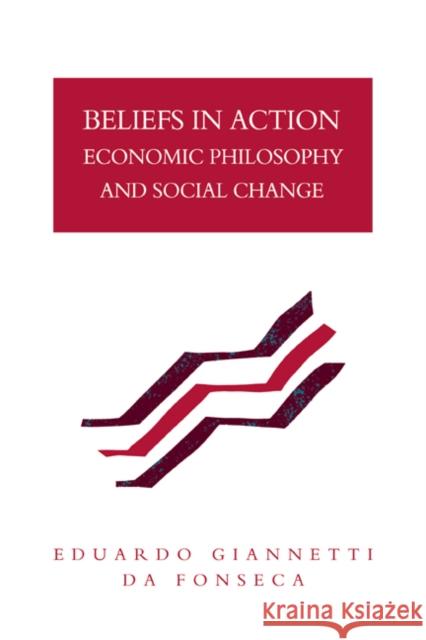Beliefs in Action » książka
Beliefs in Action
ISBN-13: 9780521393065 / Angielski / Twarda / 1991 / 272 str.
This book is concerned with the role of economic philosophy ("ideas") in the processes of belief-formation and social change. Its aim is to further our understanding of the behavior of the individual economic agent by bringing to light and examining the function of non-rational dispositions and motivations ("passions") in the determination of the agent's beliefs and goals. Drawing on the work of David Hume and Adam Smith, the book spells out the particular ways in which the passions come to affect our ordinary understanding and conduct in practical affairs and the intergenerational and interpersonal transmission of ideas through language. Concern with these problems, it is argued, lies at the heart of an important tradition in the British moral philosophy. This emphasis on the non-rational nature of our belief-fixation mechanisms has important implications: it helps to clarify and qualify the misleading claims often made by utilitarian, Marxist, Keynesian, and neo-liberal economic philosophers, all of whom stress the overriding power of ideas to shape conduct, policy, and institutions.











